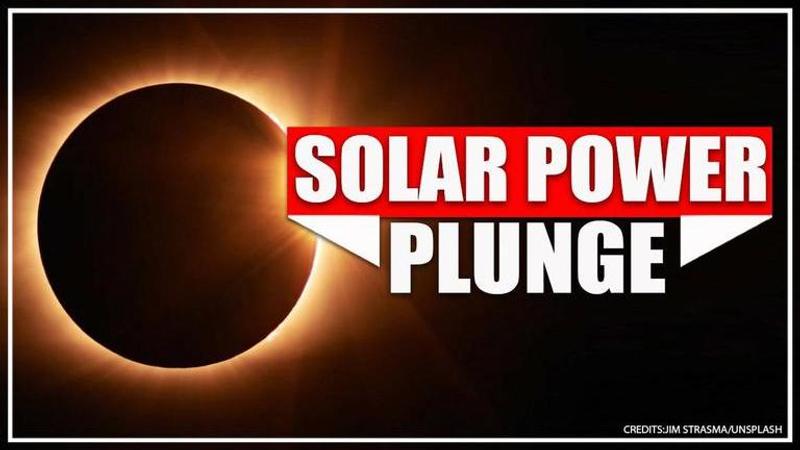Published 10:11 IST, June 22nd 2020
India's solar power dropped to a third during Eclipse; grid operators managed just fine
As the rare Annular Solar Eclipse was observed all across the world on Sunday, India's solar power generation dropped drastically due to the celestial event

As the rare solar eclipse was observed all across the world on Sunday, India's solar power generation dropped drastically due to the celestial event. Reports state that there was a plunge of close to 12 gigawatts of solar energy on Sunday owing to the solar eclipse. However, the power grid operators were able to manage the grid operation successfully amid the massive drop which was followed by a sudden surge in the generation of energy, as per a report.
India at present has 37.62 GW of solar power and has one of the largest interconnected grids in the world, which is capable of transferring 99,000 MW of electricity from any part of the country. India aims to have 100 GW of solar capacity by 2022. In the decade ending March 31, 2020, India expanded its installed solar power capacity by 233 times from 161 MW to 37,627 MW.
India has the lowest capital cost per MW globally to install solar power plants. The International Solar Alliance (ISA), proposed by India as a founder member, is headquartered in India. India has also put forward the concept of "One Sun One World one Grid" to harness abundant solar power on a global scale.
Annular Solar Eclipse 2020
The Annular Solar Eclipse began at 9.15 am and ended at 3.04 pm. The eclipse was visible in several parts across the globe including Africa, Asia and the Middle East, however, it was not visible in the USA and Canada which was experiencing night time when the eclipse was in progress.
A solar eclipse occurs at the time when Moon comes in between the Earth and the Sun. It obstructs the rays of the Sun from reaching the Earth. Thus, when the eclipse occurs, the Earth goes dark for that time. However, as the Moon is smaller in size than the Sun, it forms a ring of light when it comes in front of the Moon, depending on the extent of the solar eclipse which is generally depending on where one watches it from.
Updated 10:11 IST, June 22nd 2020




